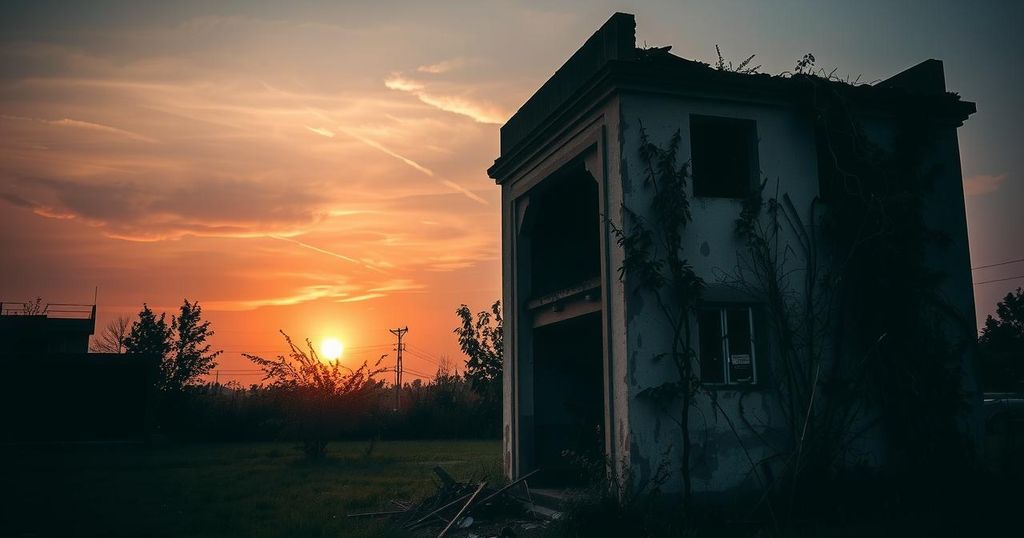The eastern DRC city of Goma has fallen under the control of the M23 rebel group, leading to significant civilian casualties and a marked increase in violence. While residents navigate their daily lives amidst fear and uncertainty, hospitals are overwhelmed with patients suffering from severe injuries, including gunshot wounds and sexual violence. The M23’s presence raises questions about regional stability as tensions with the Congolese government continue to escalate.
Upon entering Goma, a city in the eastern Democratic Republic of Congo (DRC), the bustling activity of residents made it difficult to identify the conflict zone. Street vendors called out to patrons, while commuters navigated the streets, oblivious to the presence of the M23 rebel group, which had recently seized control of the city from the Congolese government. As I approached a checkpoint, armed M23 fighters halted my vehicle, demonstrating the shifting power dynamics within the region.
The M23 rebels, primarily composed of ethnic Tutsis, claim to be advocating for minority rights amid accusations from the Congolese government that they aim to dominate the area’s rich mineral resources. Shortly after entering the city, I observed the heavy toll of the conflict, with reports indicating at least 700 fatalities and nearly 3,000 injuries resulting from clashes between M23 and DR Congo’s military forces.
In a local hospital, I met Dr. Nathaniel Cirho, who sustained injuries from a nearby explosion. He recounted a tragic event where a neighboring elder did not survive a shrapnel injury despite surgery. Several wards filled with wounded individuals revealed the dire consequences of the violence, with patients receiving treatment for severe gunshot wounds.
The conflict has also seen an alarming rise in sexual violence, with the UN Office of the High Commissioner for Human Rights condemning this tactic as a weapon of war among rival factions. Medical professionals in the city reported treating multiple victims of gender-based violence, underscoring the conflict’s broader implications on societal stability.
Despite the relative calm that has returned to Goma, many businesses remain closed or operate with limited capacity due to residents’ fears and continued instability. Local shop owner Sammy Matabishi expressed concern, indicating that many potential customers have fled to neighboring countries amidst the uncertainty, impacting trade and the local economy.
Meanwhile, the rebels’ control is reinforced by their occupation of key buildings, including the office of the late North Kivu military governor. I observed a total absence of Congolese military presence, while the rebels patrolled strategic points, wielding their authority in heart of the city. The prevailing fear among locals persists as previous tensions loom large in their memories, raising questions about the future under M23 governance.
As the M23 group continues its advance, reportedly moving toward Bukavu, the local authorities maintain that they will reclaim their territory. Rwanda’s role in supporting the rebels can no longer be easily dismissed, although official denials of backing persist. The stability of Goma remains precarious, serving as a potential bellwether for other regions should the M23 persist in their territorial ambitions.
Goma, a city in the eastern Democratic Republic of Congo, has recently come under the control of the M23 rebel group following intense conflict with national forces. The M23 claims to represent the rights of the ethnic Tutsi minority, while the DRC government accuses the rebels of seeking dominance over valuable local resources. This conflict has led to significant casualties and has greatly impacted the civilian population, with hospitals overwhelmed by those seeking medical assistance for both physical and psychological wounds.
The situation in Goma highlights the complexities of conflict in the eastern Democratic Republic of Congo, where local governance has been severely undermined by the M23’s takeover. The humanitarian crisis is escalating, with an overwhelming number of casualties and reports of sexual violence surfacing amidst the chaos. As the M23 rebels assert their control, the inhabitants face an uncertain future, prompting concerns for stability and regional security in the broader North Kivu province.
Original Source: www.bbc.co.uk




